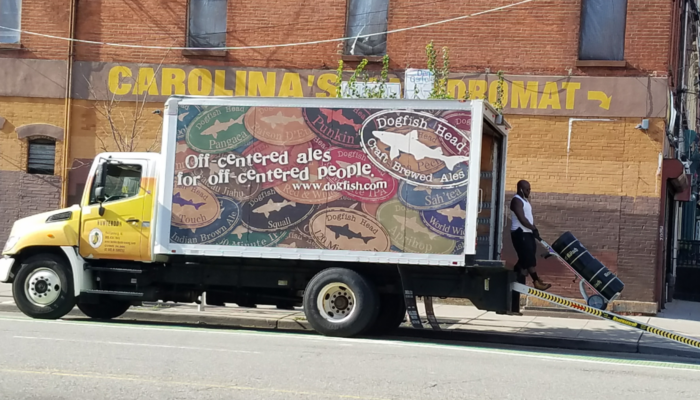Category: Shipping
Shipping and freight logistics
Expert Topic Innovation in Beer Transportation
Brewers control the quality of their beer right up to the point where it goes out the door. When a four-pack of cans, a sixer of bottles, or a growler leaves the brewery in a customer’s hands, a brewer’s job is largely done. But when beer heads out for distribution, that’s where things get complicated. Transportation, shipping, and logistics remain a challenge for most breweries, with heavy pallets loaded into heavy trucks that head to a distribution warehouse or even direct to accounts. We talked with one regional transportation company about its plans to innovate and shake up the business of transporting beer.
(more...)
Expert Topic Shipping Choices – Administration of Freight Logistics
OutSource – Work with a primary freight broker or a “go to guy”, one stop shop, handles everything. The Brewery can negotiate a set “cost plus” arrangement or set budgets on per pallet or per case freight cost targets. This can eliminate a lot of frustration and confusion for you. It may not always get the cheapest freight rate, but the benefit to the brewery’s operation is significant.
(more...)
Expert Topic Inbound Freight
This could include dry goods, glass, cans, malt, hops, purchase of new / used equipment, and empty keg returns. Most suppliers will offer to sell your goods “delivered”, cost of unit + freight, sometimes this is a good deal, they have purchasing power, or you could be paying a premium for that freight component – you need to weigh the convenience factor. The easiest way to find out the real cost is to ask the supplier, “what are you charging me for the freight” get that cost and compare rates with an independent source – may the best man win!
(more...)
Expert Topic Shipping – LTL – CLASS, NMFC code
Estimating Load Weight – When shipping LTL you are paying the carrier most likely on a weight based rate (also referred to as a tariff). The rate is determined by the weight, linear feet, standard local pick up, delivery fee, and service requirements; i.e.: lift gate required, strict appointment time, freeze protect. The most important factor is to book the LTL freight with an accurate weight.
(more...)
Expert Topic Shipping Freight Types
TL – Truck Load – When shipping something that takes up over 16 feet (a large partial) to 53 feet of a trailer and/or up to 44,000 pounds, this is considered a Truck Load. When shipping truckload, you are paying for the whole truck, the truck is going to take or deliver your goods direct from point to point. These carriers are major trucking company names and dominated by small independent and owner operators.
(more...)
Expert Topic Shipping – Freight for the Brewery
Shipping and receiving is a crucial component of any successful business that produces a product for consumption. Beer, as a product, offers many unique challenges. Failure to get raw materials to the brewery in time disrupts the brewing schedule. The finished beer product has a built in vulnerability to time and temperature as well as regulatory hurdles that can slow or stop it from reaching consumers. This can make failure to get a shipment from A to B a very expensive mistake. This content is intended to provide brewers with the essential foundation of knowledge needed to prepare and receive shipments, hopefully avoiding costly mistakes and misunderstandings that can doom a small business operating at the razors edge of a profitable margin. Freight for the brewery
(more...)
